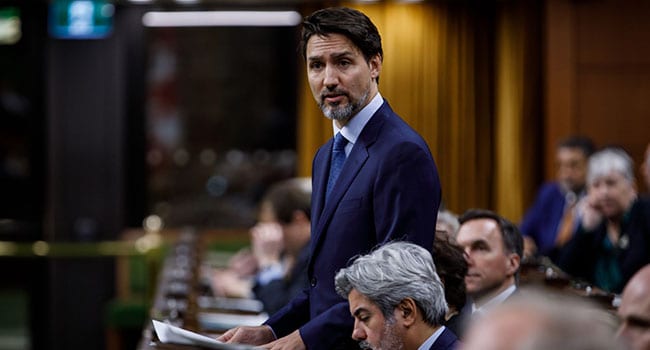 Ottawa’s political scene has been relatively tame as of late. It unexpectedly became a bit rambunctious last week after Prime Minister Justin Trudeau and the Liberals attempted to engineer their own defeat in Parliament.
Ottawa’s political scene has been relatively tame as of late. It unexpectedly became a bit rambunctious last week after Prime Minister Justin Trudeau and the Liberals attempted to engineer their own defeat in Parliament.
This occurred after the Conservatives proposed a motion to create a parliamentary committee to investigate pandemic spending and, one assumes, multiple allegations of Liberal corruption.
It seemed fairly sensible on the surface. Shouldn’t we get to the bottom of the WE Charity scandal, examine possible conflicts of interest and take a deep dive into COVID-19 spending?
Alas, Trudeau announced this motion would be turned into a vote of non-confidence in the House of Commons. That’s rare for a sitting government to do. While the PM is obviously tired of the constant badgering he’s faced on these controversial matters, there was no legitimate reason to make this switch.
Other than to temporarily stop the bleeding.
The Liberals handled this situation quite well. It was rather ballsy to initiate a non-confidence motion. The Tories, NDP, Greens and Bloc Quebecois were all thrown for a loop, and were forced to take sides. Each party would have been blamed for triggering an election during a pandemic, but the government could have pointed fingers at the opposition in various ways.
The strategy would likely have succeeded.
The motion ultimately fell apart on Wednesday. The three Green MPs decided to back the Liberals, which ensured this political dance would be short-lived. They were joined by the NDP – who opposed an election but wouldn’t immediately show their hand with respect to voting – and the two independent MPs. Only the BQ supported the Tories.
History of Trudeau government scandals
The final vote was 180-146. Trudeau and the Liberals remained in power.
Most Canadians hoped this would be the last time they would hear about an early election call for a while.
That turned out to be wishful thinking, because the possibility of a second confidence vote occurred the next day. A different Tory motion proposing a health committee review on rapid testing on COVID-19 and the overall public health response could have caused the same scenario to materialize.
Fortunately, the Liberals decided not to go that route.
Meanwhile, two provincial governments in minority legislatures opted to call early elections to see if they could shift them to majorities.
New Brunswick Progressive Conservative Premier Blaine Higgs was successful on Sept. 14, as was B.C. NDP Premier John Horgan on Sunday (although several hundred thousand mail-in ballots remain to be counted).
Both premiers benefited from the positive responses they received for handling COVID-19 policies and measures. While residents in their provinces probably could have lived without elections, they clearly wanted more of the same – and gave them larger political mandates.
The temptation for Trudeau to follow suit will be difficult to resist.
The CBC News Poll Tracker, which operates as a political aggregate, has the Liberals at 36.4 per cent, followed by the Tories at 30.5 per cent and the NDP at 17.9. The probability of the Liberals forming a majority is 47 per cent and winning the most seats (with no majority) is 45 per cent, whereas the Tories’ probability of simply winning the most seats is only eight per cent.
Support for the Liberals in terms of governing and financial/spending performance during COVID-19 is pretty solid, too.
A Maru/Blue public opinion poll conducted between Oct. 2 and 4 showed that 53.5 per cent of respondents supported the government as a national average. Support in Atlantic Canada was 63 per cent, followed by Ontario (57 per cent), Quebec (56), B.C. (53) and Saskatchewan/Manitoba (52 per cent). The one outlier was Alberta at 40 per cent, but that’s not a bad number for a Liberal government with a Trudeau at the helm.
The life of an average minority government in Canada has historically been 16 to 18 months. It can end at any time and the resulting election can obviously shift in many directions.
Nevertheless, there’s a very good chance the Liberal government will fall right in that time period of its own making and in a political environment that may do their bidding.
Michael Taube, a Troy Media syndicated columnist and Washington Times contributor, was a speechwriter for former prime minister Stephen Harper. He holds a master’s degree in comparative politics from the London School of Economics.
The views, opinions and positions expressed by columnists and contributors are the author’s alone. They do not inherently or expressly reflect the views, opinions and/or positions of our publication.

